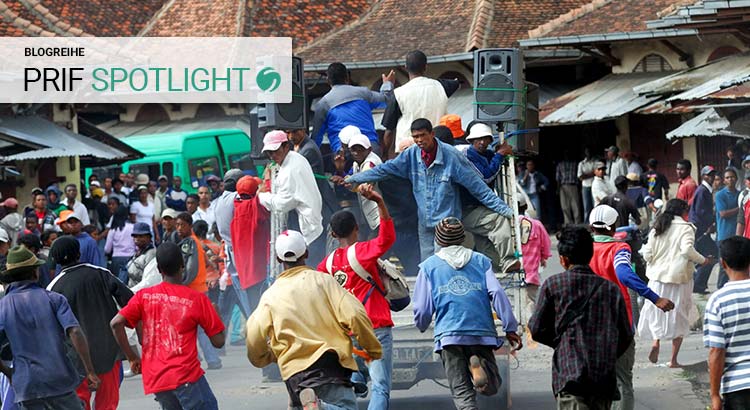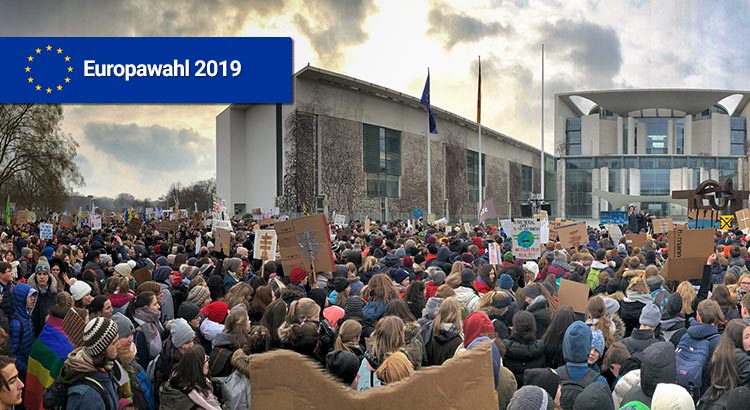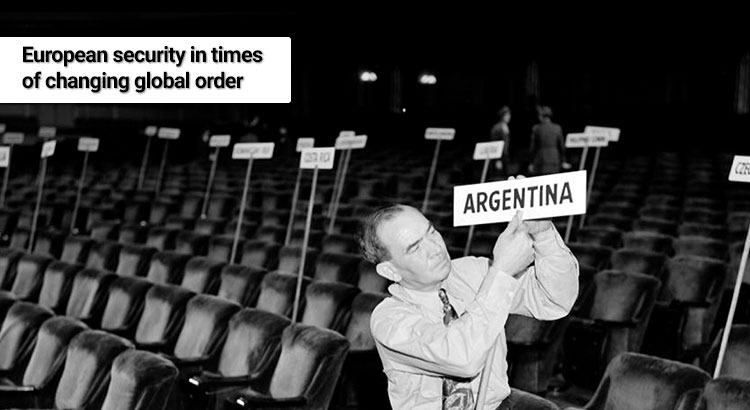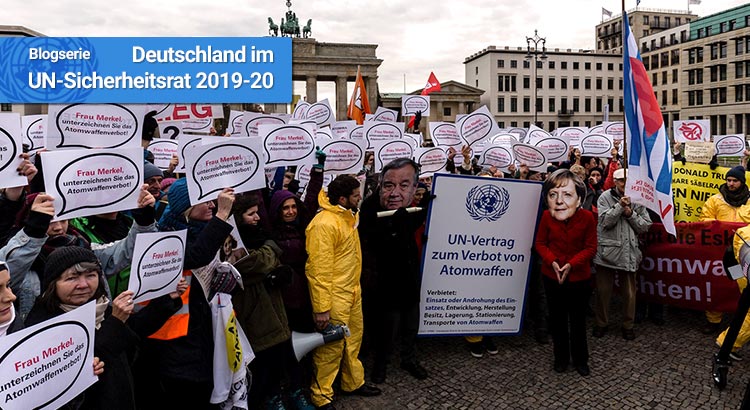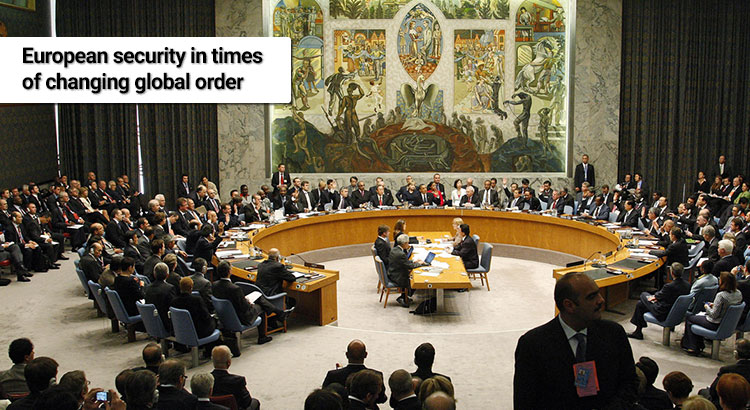In 2007, African Heads of State and Government adopted the African Charter on Democracy, Elections and Governance. This regional instrument was supposed to “promote the universal values and principles of democracy.” Yet has it had such an effect? With this PRIF Spotlight I shed light on two country cases – Madagascar and Burkina Faso – in which the Charter was (not) used by civil society organizations in their struggle for better democratic governance. If the Charter is to become an effective instrument in the hands of civil society in the future, the African Union will have to invest more in its popularization and active promotion.
#Fridays4Future und die Europawahlen: Politikverdrossenheit sieht anders aus
Die Klimademonstrationen #Fridays4Future zeigen ein unterschiedliches Problembewusstsein zwischen der jungen Generation und gegenwärtigen Generation von Politikerinnen auf. Die Europawahlen am 20.Mai 2019 stehen nun im Mittelpunkt. Vor den letzten Europawahlen 2014 hat fast ein Drittel der jungen Wählerinnen und Wähler ihre Wahlentscheidung kurz vor oder sogar am Wahltag getroffen. Die angekündigten globalen Klimademonstrationen am 24. Mai könnten das Wahlergebnis beeinflussen – aber weniger die Unterrepräsentation der jungen Menschen in der Politik.
“It is not enough to diagnose a crisis – we also have to actively deal with it.” An interview with Nils Schmid
A crisis or even the end of the liberal, multilateral world order is a frequently-heard diagnosis these days. In her interview with Nils Schmid, Member of Parliament for the Social Democratic Party of Germany (SPD), Vera Rogova asks about possible coping strategies, Chinese and Russian influence and Germany’s current and future role in international politics.
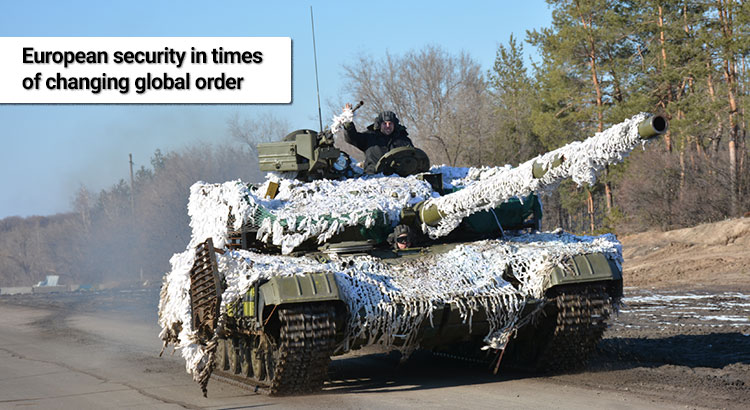
“Unfortunately for all of us, the world did not go the ‘European way’”. An interview with Sergey Karaganov
The state of European security was an important topic at this years’s Schlangenbad Talks. Vera Rogova talked to Prof. Sergey Karaganov (National Research University – Higher School of Economics. Moscow) about the usefulness of arms control and challenges to the Liberal World Order.
“Recalibrating European security”?: A reply
Hans-Joachim Spanger rightly points to the main challenges to European security emphasizing that new challenges could only be adequately addressed against the backdrop of the global political changes of the last ten to twenty years. He makes a worrying diagnosis of the current state of European security, and provides some practical recommendations for improving the situation. However, we should not give up upon the existing order with its liberal norms and principles so quickly as this would strengthen those actors that seek to undermine it.
‚High Time‘ für nukleare Abrüstung?
Die deutsche Außenpolitik möchte mit ihrem Vorsitz im UN-Sicherheitsrat neue Impulse für nukleare Abrüstung und Rüstungskontrolle geben und dabei den Atomwaffensperrvertrag (NVV) stärken. Damit bringt sich Deutschland als Mediatorin zwischen den Fronten im NVV in Stellung, die sich durch die Verabschiedung des Atomwaffenverbotsvertrages (TPNW) 2017 verhärtet haben. Doch die Bundesregierung pocht auf die uneingeschränkte Gültigkeit und Vorrangstellung des NVVs und bleibt unkreativ in ihren Vorschlägen zur Stärkung der nuklearen Rüstungskontrolle. Mit der Weigerung der Bundesregierung, die politische Realität des TPNWs anzuerkennen, trägt Deutschland so nicht zu einer Entspannung der heiklen Lage bei, in der sich die nuklearen Rüstungskontrollregime momentan befinden.
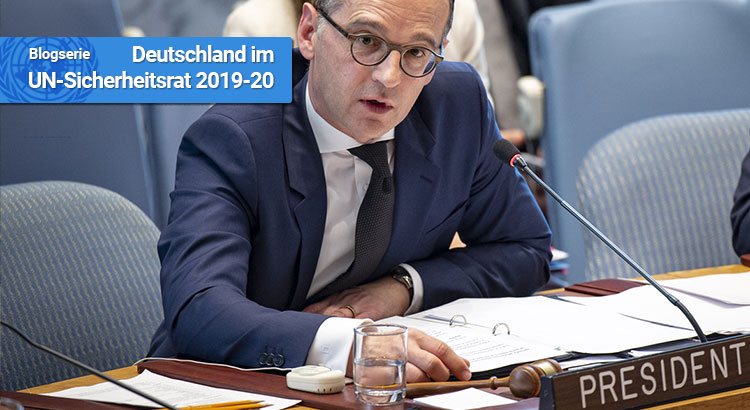
Vorhang auf: Deutschlands Präsidentschaft im UN-Sicherheitsrat
Heute endet der einmonatige Vorsitz Deutschlands im UN-Sicherheitsrat. Neben dem Versuch, durch einige symbolische Neuerungen etwas frischen Wind in den oft blockierten Rat zu bringen, standen in den vergangenen vier Wochen auch zahlreiche inhaltliche Themen auf der deutschen Präsidentschafts-Agenda. Dieser Beitrag gibt einen kurzen Überblick: Was ist im letzten Monat passiert? Welche Themen standen im Mittelpunkt? Und: Was könnte bleiben von der deutschen Präsidentschaft?

Die Schlangenbader Gespräche als Forum für die deutsch-russischen Beziehungen
Die Schlangenbader Gespräche werden häufig als Stimmungsbarometer für die deutsch-russischen Beziehungen bezeichnet. Seit 1998 treffen sich dort jährlich hochkarätige TeilnehmerInnen aus Politik, Wissenschaft, Militär und den Medien um sich über aktuelle Herausforderungen auszutauschen – dieses Jahr zum Thema „Die liberale Weltordnung am Ende? Herausforderungen europäischer Selbstbehauptung“.
Ways out of the crisis: recalibrating European security
European security is in crisis. Like every crisis, this one not only has a prior history, it has also been in the offing for quite some time. 2008 marked a first peak, after the Bush administration offered the NATO Membership Action Plan to Georgia and Ukraine: Russia demonstrated in the war with Georgia who sets the tone in the former Soviet Union. A similar pattern emerged in 2014 in the Ukrainian crisis, this time with the EU in charge and Russia reacting even more forcefully. Since then, the crisis has escalated with almost unrestrained momentum. Its most recent expression is the termination of the INF Treaty, which carries with it the acute danger of a new (medium-range) missile crisis on the continent.
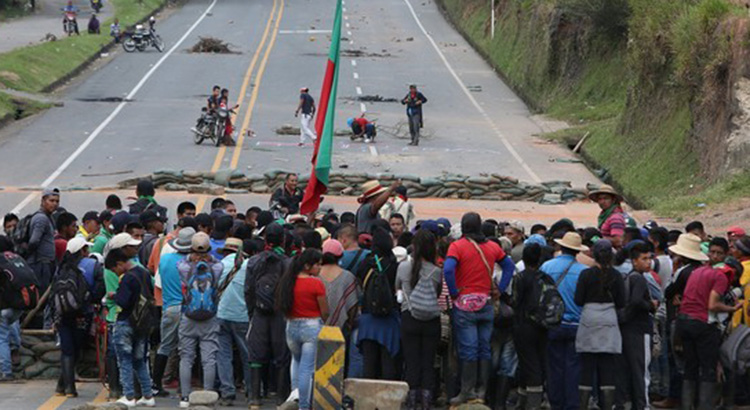
A punto de escalar: grupos indígenas se movilizan en contra del gobierno en Colombia
Desde el 10 de Marzo de 2019, grupos indígenas en el suroccidente Colombiano protestan. La actual radicalización de la Minga, demuestra no solamente la negligencia del gobierno y los temores de seguridad, sino que representa también un síntoma de los reclamos entre los grupos marginalizados: La Minga se convirtió rápidamente en un extenso movimiento con vías bloqueadas, en especial la vía Panamericana, con más de 20.000 personas involucradas y confrontaciones violentas con las fuerzas de seguridad nacional en los bloqueos. Esta movilización social en el medio de un conflicto violento con grupos armados está a punto de escalar violentamente, pero también ofrece una ventana de posibilidad para hacer presión al gobierno frente a nuevas reformas.
